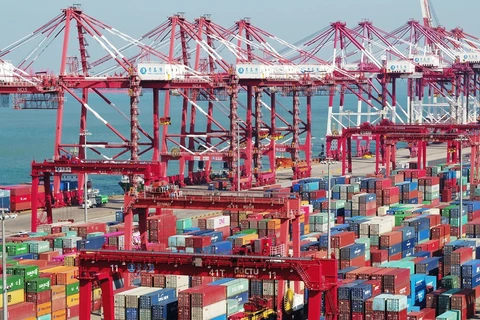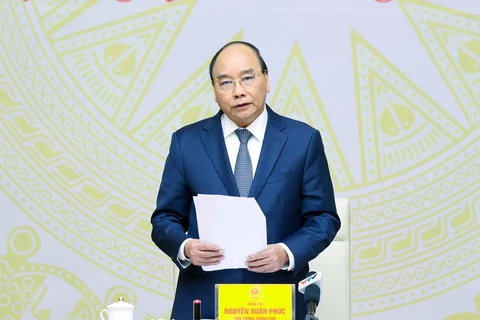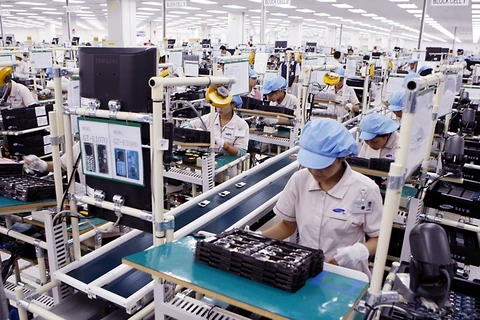 A surgery conducted at the Vinmec Times City General Hospital, a private hospital in Hanoi (Photo: VNA)
A surgery conducted at the Vinmec Times City General Hospital, a private hospital in Hanoi (Photo: VNA) Nipro Pharma Vietnam, invested in by the Nipro Pharma Corporation - one of Japan’s leading pharmaceutical companies - is completing necessary procedures to add 270 million USD to its investment in a factory at the Saigon Hi-Tech Park in Ho Chi Minh City.
According to the Japan External Trade Organisation (JETRO), a large number of Japanese businesses are seeking the chance to tap into Vietnam’s healthcare market given its substantial potential.
The sector has attracted new investment inflows recently, especially last year, with a number of new projects from both domestic and foreign companies.
In late 2020, a group of investors led by the Singaporean Government’s GIC sovereign wealth fund poured more than 203 million USD into Vingroup’s VMC, which develops and operates the Vinmec hospital system.
VinaCapital’s Vietnam Opportunity Fund, meanwhile, invested 26.7 million USD in the Thu Cuc International General Hospital, while the UK’s Real Capital London debuted the Hong Anh (UK Vietnam) Medical Campus in HCM City, worth about 156 million USD.
Many projects funded by domestic investors were also licensed or became operational last year, such as the TV.Pharm Hi-tech Pharmaceutical Complex, Van Phuc - Sai Gon Hospital, and Hoan My Western Hospital.
Such moves show that hospital investment is increasingly attractive to investors due to growing middle class demand for high-quality healthcare, the newspaper said.
Meanwhile, multinational pharmaceutical groups such as Novartis, Roche, Sanofi, GSK, and AstraZeneca are promoting “social business” via new programmes.
In late January, AstraZeneca worked with the Ministry of Health (MoH) and three specialised associations to launch a communications campaign to help raise awareness in Vietnam about asthma.
The MoH’s Department of Medical Examination and Treatment, the UK Embassy in Vietnam, and GSK recently signed a memorandum of understanding on cooperation in antimicrobial resistance prevention and control for 2021-2023, the paper reported.
The healthcare sector estimated that it needs about 176 trillion VND (over 7.6 billion USD at current exchange rates) for infrastructure development between 2010 and 2015. Since 2010, however, the Government has met only two-thirds of this capital demand.
The sector therefore views private investment as an important source of funding.
Despite this, private investment in healthcare still falls short of expectations, Dau tu noted, adding that the use of public-private partnerships (PPPs) remains modest due to the absence of a legal framework for such investment.
The Law on PPP Investment, which took effect on January 1, is expected to address obstacles relating to the legal framework and facilitate private investment in healthcare. The 2020 Law on Investment and Law on Enterprises are also set to create momentum for capital flows.
In the face of certain barriers, World Bank analysts have recommended prudence in the selection of PPP models and contracts in healthcare, suggesting that the MoH build a circular guiding selection, preparation, implementation, monitoring, and assessment of healthcare PPP projects in a fair and effective manner./.
VNA
























